What is the most profitable crop to grow in Ghana?
Are you a farmer in Ghana wondering how to make more money? Choosing the right crop can be tricky, but it's key to boosting your income.
Cocoa is often the most profitable, but cashews, shea nuts, and certain vegetables also offer high returns, depending on market demand and your specific conditions.
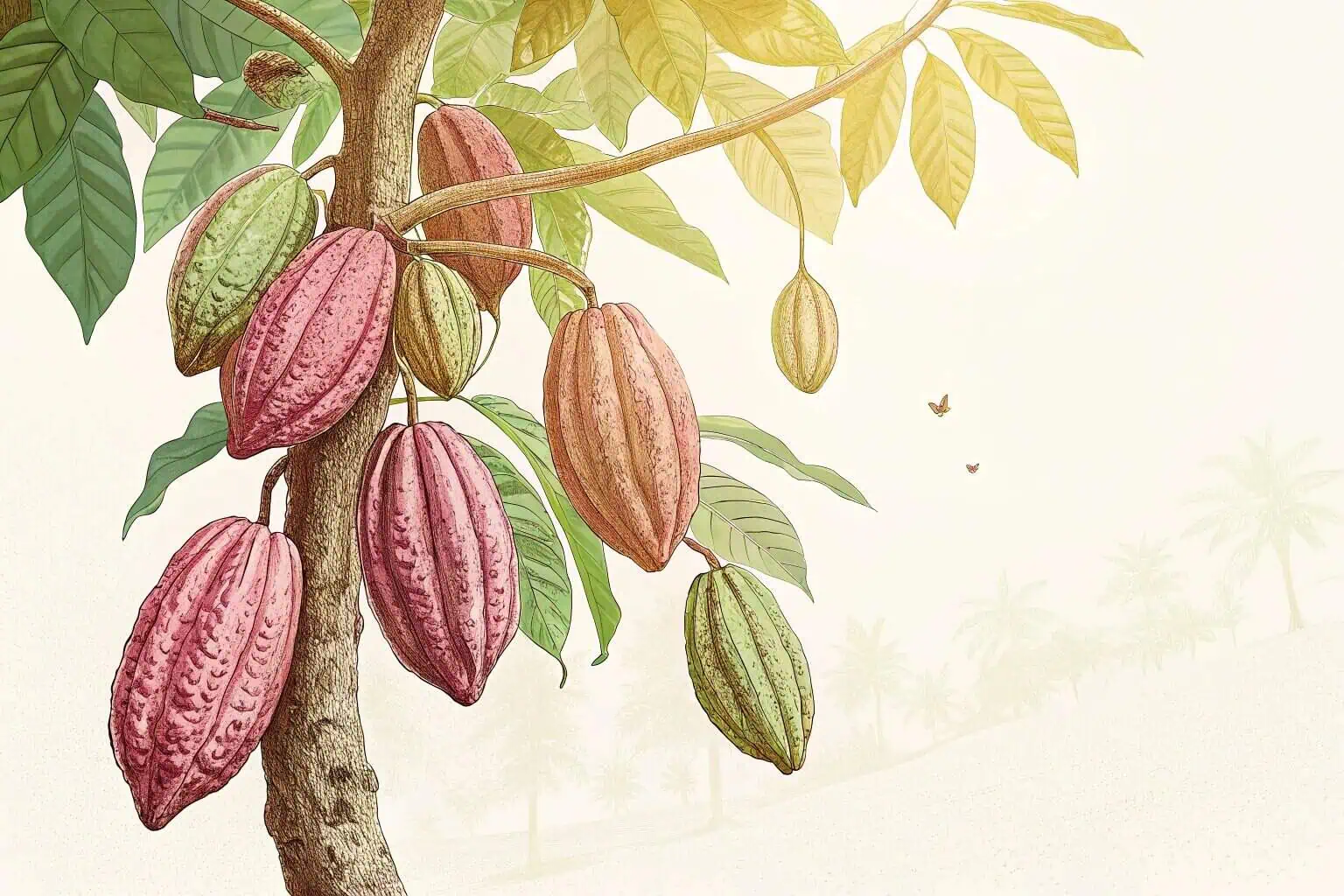
Figuring out the best crop for your farm in Ghana can feel like a big puzzle. You want something that grows well and sells for a good price. Let's look at some top choices to help you decide and make your farm more successful.
What are the high yielding crops in Ghana?
Do you want to get more from your land? High-yielding crops are essential for maximizing your farm's output and, ultimately, your profits.
Maize, cassava, and yams are known for their high yields in Ghana, providing substantial harvests that can significantly boost a farmer's income and food security.
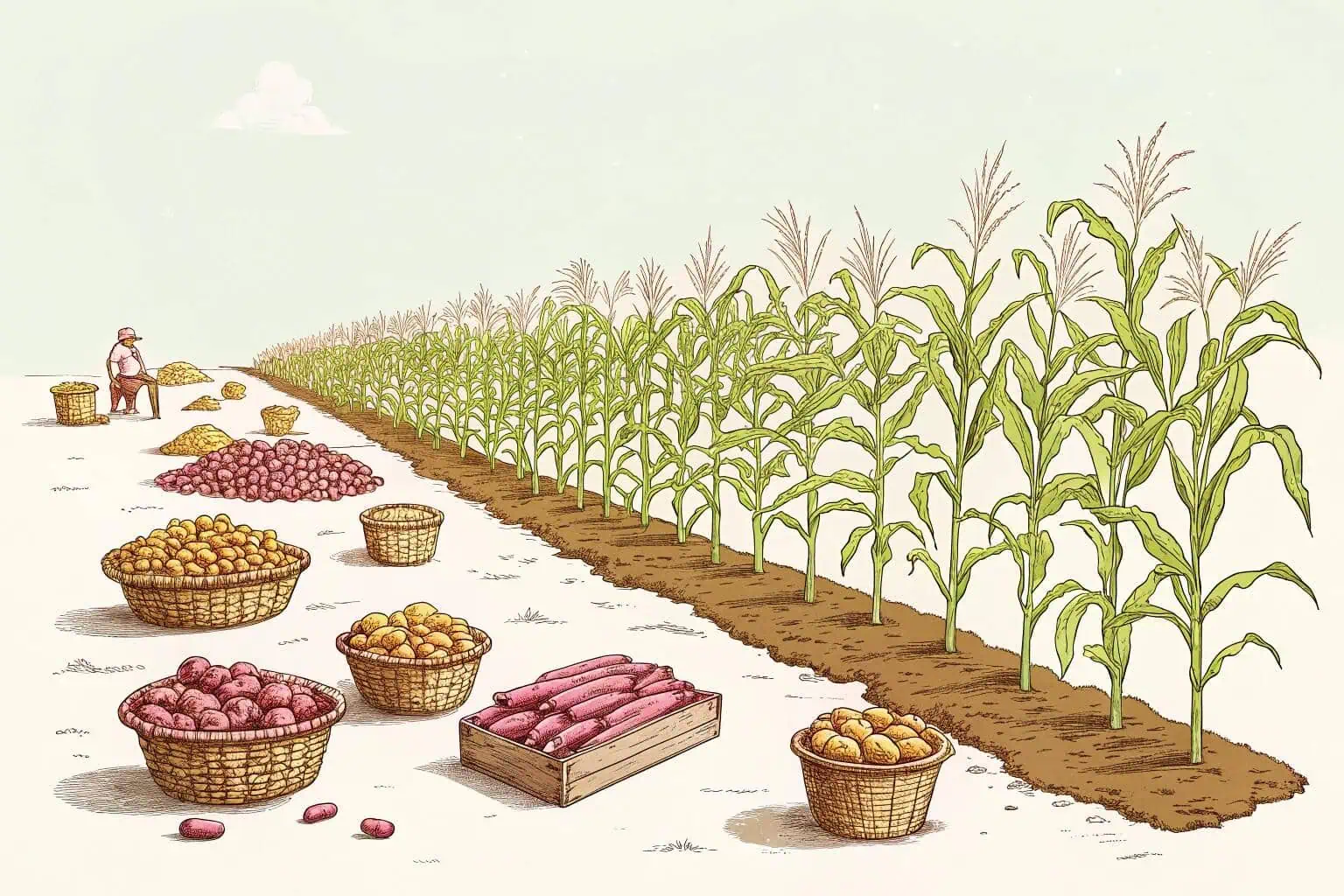
Choosing crops that produce a lot per acre1 is a smart move for any farmer. In Ghana, we have several options that fit this bill. I've seen firsthand how focusing on these can change a farm's fortunes. It's not just about planting; it's about planting smart. These crops often have strong local demand too, which means you can sell them easily. I remember when I first started focusing on cassava; the difference in yield compared to some other crops I was trying was remarkable. It taught me the importance of research and choosing wisely. To get the most out of them, we need to think about soil, weather, and best farming practices. It's a journey of learning and adapting, but the rewards can be great. Here's a quick comparison:
| Crop | Yield Potential | Resilience | Key Considerations2 |
|---|---|---|---|
| Maize | High | Moderate | Water management, good seeds |
| Cassava | Very High | High | Poorer soils, drought-tolerant |
| Yams | High | Moderate | Labor intensive, soil quality |
Understanding these differences can help you make an informed decision for your farm.
Understanding Maize Potential
Maize is a staple food in Ghana and a very popular choice for farmers. It grows relatively quickly and can be harvested multiple times a year in some regions if conditions are right. I've found that with good quality seeds and proper fertilization, the yields can be impressive. The government often supports maize farmers with subsidies, which helps a lot with input costs. However, maize can be sensitive to drought, so water management is key. I've learned to look for drought-resistant varieties3 to be safer. It's a crop that responds well to good agronomic practices, and seeing a field of healthy maize ready for harvest is always a satisfying sight for me.
Cassava: The Resilient Choice
Cassava is incredibly resilient. It can grow in poorer soils where other crops might fail, and it's quite drought-tolerant. This makes it a reliable option, especially in areas with unpredictable rainfall. I've seen many smallholder farmers depend on cassava for both food and income. The demand for cassava products like gari and starch is also consistently high. One thing I've learned is that proper processing is important to get the best price for cassava. Its ability to thrive under tough conditions makes it a cornerstone of food security4 for many families I know.
Yams: A Valued Crop
Yams are a highly valued crop in Ghana, often commanding good prices in the market. They require more labor and specific soil conditions, but the returns can justify the effort. I've noticed that yams are particularly important for cultural events and ceremonies, which keeps demand steady. Staking the yams and managing pests5 are crucial for a good harvest. It's a crop that requires attention to detail, but when done right, it's very rewarding. I always advise new yam farmers to start small and learn the techniques before expanding, just like I did.
What is Ghana's main cash crop?
Are you wondering which crop truly drives Ghana's agricultural economy? Identifying the main cash crop is crucial for understanding market dynamics and export potential.
Cocoa is Ghana's main cash crop, a major export earner, and the backbone of income for hundreds of thousands of smallholder farming families across the country.
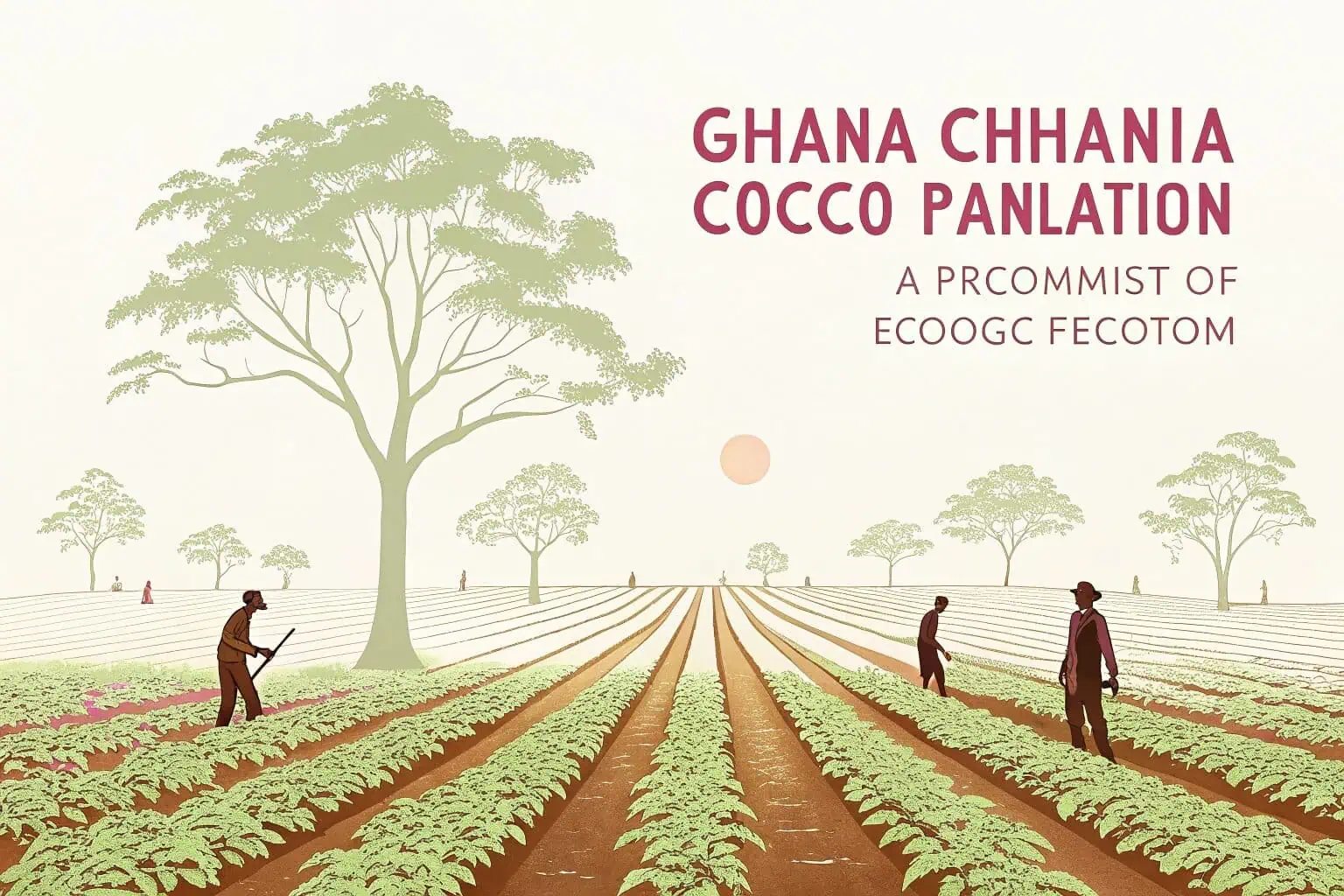
When people talk about farming in Ghana, cocoa6 is almost always the first thing that comes to mind. It's more than just a crop; it's a way of life for so many. I've spent a lot of time in cocoa-growing regions, and the impact of this crop is clear. The entire local economy often revolves around the cocoa season. While it's a strong performer, relying too much on one crop can be risky. That's why I always encourage farmers to think about diversifying. The global price of cocoa can go up and down, so having other sources of income is a good safety net. I've seen farmers successfully intercrop cocoa with other plants, which is a smart strategy. Here's a summary of cocoa's role:
| Aspect | Description | Implication for Farmers |
|---|---|---|
| Economic Role | Main export earner, significant GDP contribution | Primary income source for many |
| Challenges | Pests, diseases, climate change, price volatility | Requires good management, risk mitigation |
| Support Systems | COCOBOD, subsidies, training7 | Access to resources and knowledge |
This gives a snapshot of why cocoa is so central to Ghanaian agriculture.
The Dominance of Cocoa
Cocoa has a long history in Ghana, and the country is one of the world's top producers. The quality of Ghanaian cocoa is recognized internationally, which helps maintain its market position. The government, through COCOBOD, plays a significant role in the sector, from setting prices to providing extension services. I've seen how these services, like training on disease control and best farming practices, can make a real difference to farmers' yields and the quality of their beans. It's a well-established industry with a lot of infrastructure and support systems in place, which is a big advantage for us farmers.
Challenges in Cocoa Farming
Despite its importance, cocoa farming isn't without its challenges. Pests and diseases, like swollen shoot virus8, can devastate farms. Climate change is another big concern, with unpredictable rainfall patterns and rising temperatures affecting yields. I've also seen how aging cocoa trees can lead to lower productivity. Replanting with new, improved varieties is essential, but it's a significant investment for farmers. Access to finance for these kinds of improvements is something I believe needs more attention, as I've faced these hurdles myself.
Government and Industry Support
The Ghanaian government and various industry players are actively working to support the cocoa sector. There are programs for supplying subsidized fertilizers and pesticides, and initiatives to promote sustainable cocoa farming. I've participated in workshops focused on good agricultural practices9, and these are invaluable. The focus on quality and sustainability is important for maintaining Ghana's reputation in the global market. I think there's a strong commitment to ensuring the long-term viability of cocoa farming in the country, which is encouraging for everyone involved in this vital industry.
Which vegetable is the most profitable in Ghana?
Thinking about growing vegetables for profit? Knowing which ones offer the best returns can make a big difference to your farming business in Ghana.
Tomatoes, peppers (especially chili and bell peppers), and onions are often the most profitable vegetables in Ghana due to high local demand and relatively quick turnover.
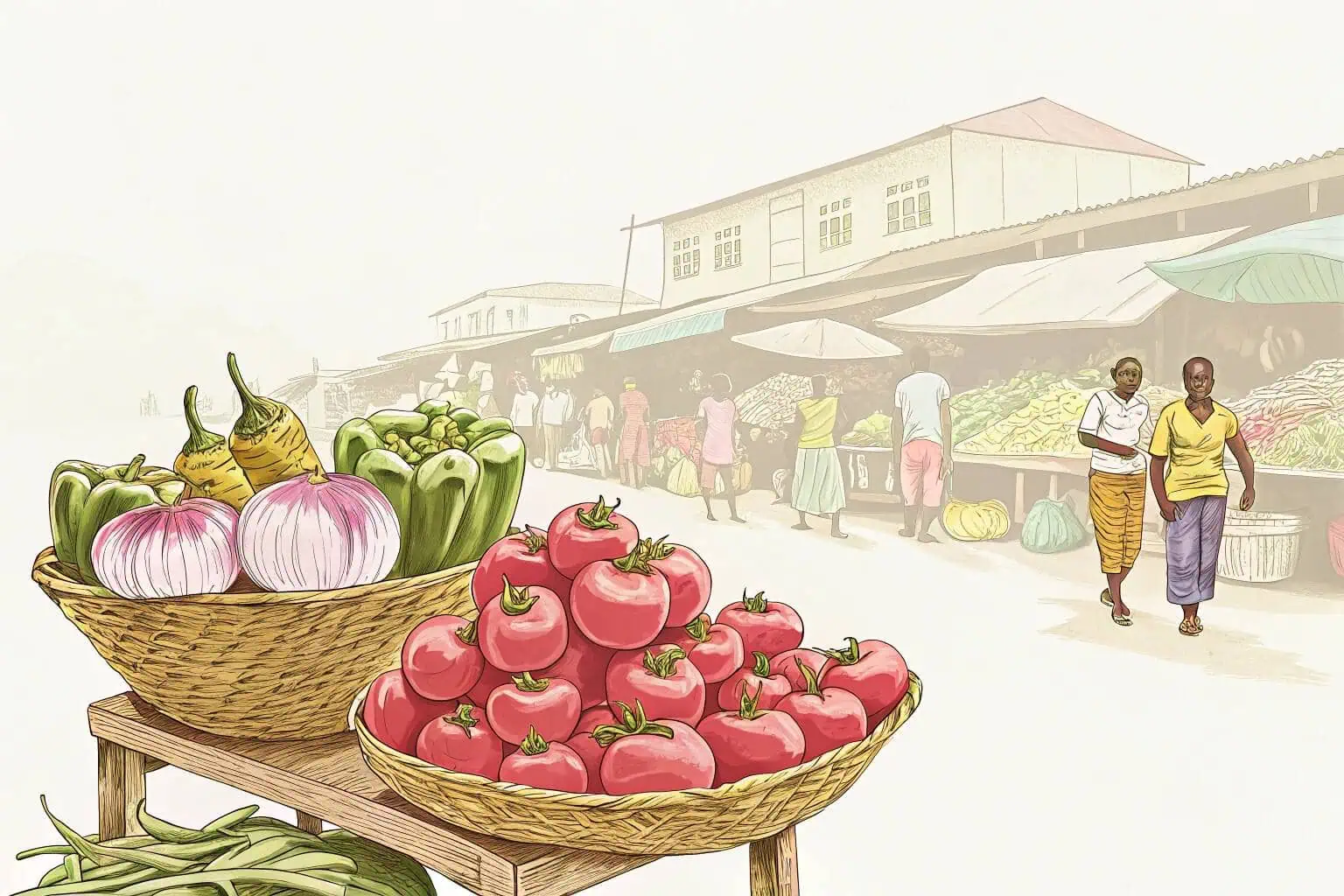
Vegetable farming can be a great way to earn a good income, especially because many vegetables have short growing cycles. This means you can get multiple harvests in a year. I've seen many farmers do very well by focusing on vegetables that are always in demand in local markets. The key is to understand what people want to buy and to grow high-quality produce. Things like tomatoes, peppers, and onions are used in Ghanaian cooking every day. Good post-harvest handling is also very important to reduce losses and get the best prices. I've also noticed that some exotic vegetables10 are becoming more popular, especially in urban areas. Here's a look at some top vegetable choices:
| Vegetable | Profitability | Demand | Key Challenges |
|---|---|---|---|
| Tomatoes | High | High | Pest/disease management11, irrigation |
| Peppers | High | High | Pest control, market preference |
| Onions | Good | High | Specific soil, curing, storage |
This comparison can guide your decision on which vegetables to focus on.
Tomatoes: A Staple with High Demand
Tomatoes are a cornerstone of Ghanaian cuisine12, and the demand is consistently high throughout the year. I've found that growing tomatoes can be very profitable, but it also requires careful management. They are susceptible to pests and diseases, so you need to be vigilant. Irrigation is often necessary, especially during the dry season, to ensure good yields. I've learned that choosing the right variety for your local conditions and market preference is crucial. Some varieties are better for fresh consumption, while others are preferred for processing into paste. My own experience taught me that early pest detection saves a lot of trouble later.
Peppers: Spice and Profit
Peppers, including chili peppers13 (like scotch bonnet) and bell peppers14, are another excellent choice for profitable vegetable farming. Chili peppers are a key ingredient in many Ghanaian dishes, and there's also an export market for some varieties. Bell peppers are popular in urban markets and with hotels and restaurants. I've seen that peppers generally fetch good prices. Like tomatoes, they require good management practices, including pest control and proper watering. I always advise farmers to research which pepper varieties are most in demand in their target market before planting large scale.
Onions: An Essential Ingredient
Onions are another vegetable with constant demand. While Ghana imports a significant amount of onions, there's a big opportunity for local farmers to fill this gap. Growing onions successfully requires specific knowledge about soil types and curing techniques. I've noticed that farmers who master onion cultivation15 can make very good returns. Storage is also a key factor for onions, as proper storage can allow farmers to sell when prices are higher, rather than immediately after harvest when the market might be flooded. I learned this the hard way one season.
What are the high value crops in Ghana?
Looking for crops that can bring in top cedi? Focusing on high-value crops can significantly increase your farm's profitability and open up new market opportunities.
Cashews, shea nuts, mangoes, and pineapples are considered high-value crops in Ghana, often with strong export potential and commanding premium prices in both local and international markets.
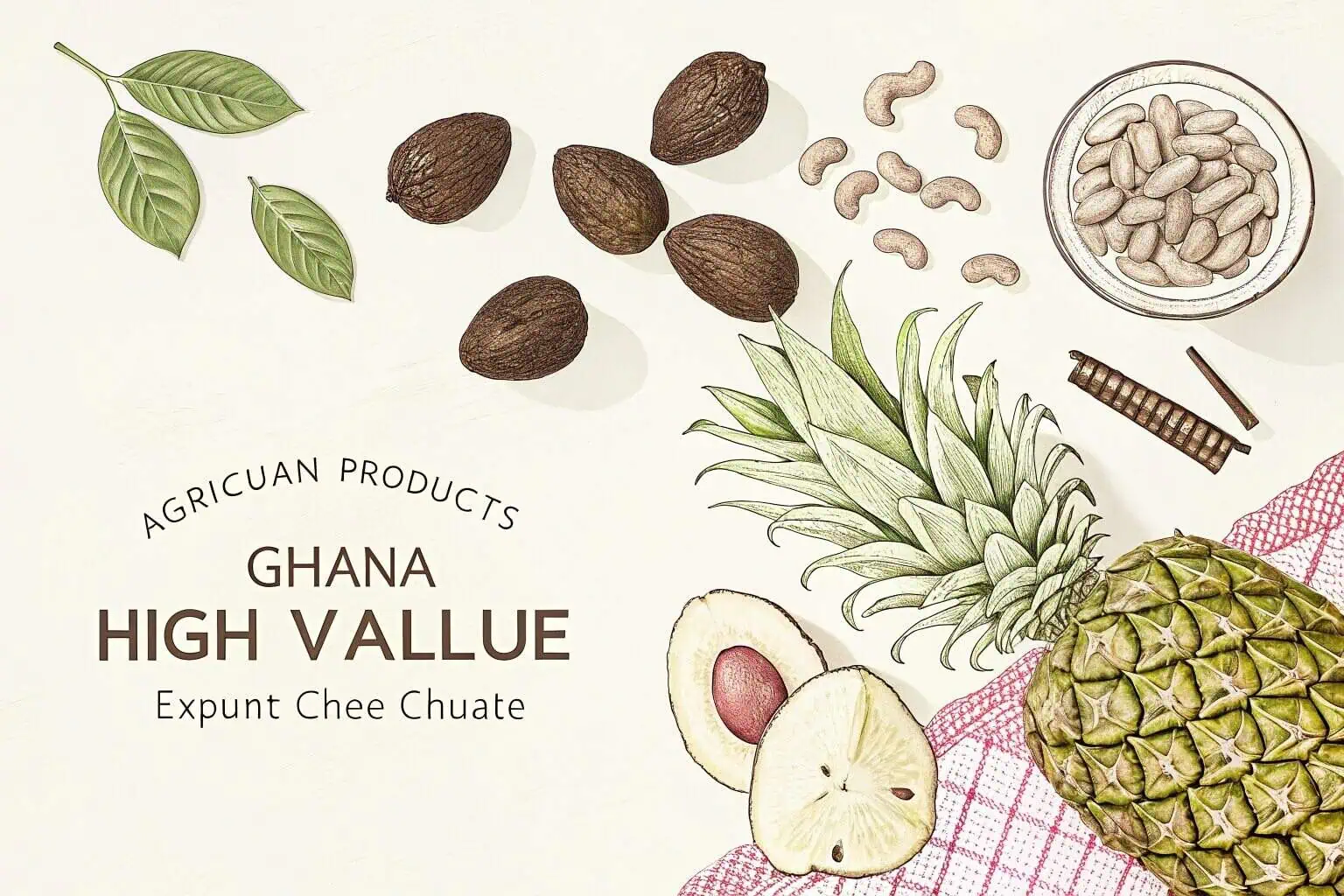
When we talk about high-value crops16, we're looking at produce that can give you more money for the amount you grow. These are often crops that have a strong demand in export markets, or niche local markets. I've seen how farmers who successfully cultivate these crops can really transform their income. It often requires a bit more investment or specialized knowledge, but the payoff can be worth it. For example, cashews and shea nuts are increasingly popular globally. Fruits like mangoes and pineapples, especially when grown to export quality standards17, can also be very lucrative. Here's a brief overview:
| Crop | Market Value | Export Potential | Key Considerations |
|---|---|---|---|
| Cashews | High | Strong | Long-term investment, processing adds value |
| Shea Nuts | High | Growing | Traditional, ethical sourcing important |
| Mangoes | Good-High | Good | Quality standards, orchard management |
| Pineapples | Good-High | Good | Quality standards, irrigation |
Exploring these options could lead to greater financial success for your farm.
Cashews: A Growing Export Market
Cashew cultivation has been expanding rapidly in Ghana, and for good reason. There's a strong global demand for cashew nuts, and Ghana is well-positioned to supply this market. I've seen many farmers transition to or add cashew to their farms. While cashew trees take a few years to start producing significantly, they are relatively hardy and can grow in areas where other crops might struggle. The processing of raw cashew nuts18 into kernels adds further value, and there's a growing local processing industry. I believe cashews offer a great long-term investment for farmers, and I've started a small plot myself.
Shea Nuts: The Gold of the North
Shea nuts are a traditional crop, particularly in the northern parts of Ghana, and the butter extracted from them is highly valued in the international cosmetics and food industries. I've seen how shea collection and processing provide a vital source of income, especially for women in rural communities. The demand for ethically sourced and organic shea butter19 is growing, which presents a great opportunity. Improving collection and processing techniques can help increase the quality and value of the shea products. It's a crop with a rich cultural heritage and a bright economic future, deeply connected to our traditions.
Mangoes and Pineapples: Tropical Fruit Exports
Ghanaian mangoes and pineapples20 are sought after in international markets, particularly in Europe. I've worked with farmers who specialize in these fruits, and when they meet the quality and phytosanitary standards for export, the returns can be very good. This often involves specific varieties, careful orchard management, and good post-harvest practices. There's also a strong local market for these fruits. Investing in irrigation and pest management is crucial for consistent, high-quality production. I've seen that forming farmer groups or cooperatives can help with accessing export markets and sharing knowledge, which has been beneficial in my community.
Conclusion
Choosing profitable crops in Ghana involves understanding yields, market demand, and your own farm's conditions. Cocoa, cashews, and certain vegetables offer great potential for success.
-
Discover the most productive crops to maximize your yield and profits per acre, essential for any successful farming operation. ↩
-
Identifying key considerations can guide farmers in making informed decisions for better crop management and yield. ↩
-
Exploring this resource will help you discover the most resilient maize varieties, ensuring better yields even in challenging conditions. ↩
-
Discover how cassava plays a vital role in ensuring food security for families, especially in regions facing agricultural challenges. ↩
-
Learn about pest management strategies that can improve yam yields and ensure a successful harvest. ↩
-
Explore the significance of cocoa in Ghana's economy and its influence on local livelihoods. ↩
-
Learning about available support systems can empower farmers to access vital resources and improve their practices. ↩
-
Understanding swollen shoot virus is crucial for cocoa farmers to protect their crops and improve yields. Explore this link for detailed insights. ↩
-
This link will help you understand essential practices that improve cocoa yield and quality, benefiting farmers and the industry. ↩
-
Exploring popular exotic vegetables can help you tap into new market trends and increase your sales. ↩
-
Explore this resource to learn about innovative pest and disease management techniques that can enhance your vegetable yield. ↩
-
Exploring this link will deepen your understanding of the cultural significance of tomatoes in Ghanaian dishes. ↩
-
Explore this link to discover the most profitable chili pepper varieties that can enhance your farming success. ↩
-
This resource provides essential tips and techniques for growing bell peppers, ensuring a fruitful harvest. ↩
-
Explore this resource to learn effective techniques and tips for successful onion farming, maximizing your yield and profits. ↩
-
Explore this link to understand how high-value crops can significantly boost farmers' income and market opportunities. ↩
-
Learn about the quality standards necessary for successful fruit exports, ensuring profitability and market access. ↩
-
Learn about the processing methods of raw cashew nuts to appreciate the value addition and quality improvement in the industry. ↩
-
Explore the diverse applications and benefits of shea butter, a key ingredient in cosmetics and food, to understand its value better. ↩
-
Explore the unique qualities of Ghanaian mangoes and pineapples that make them highly sought after in global markets. ↩